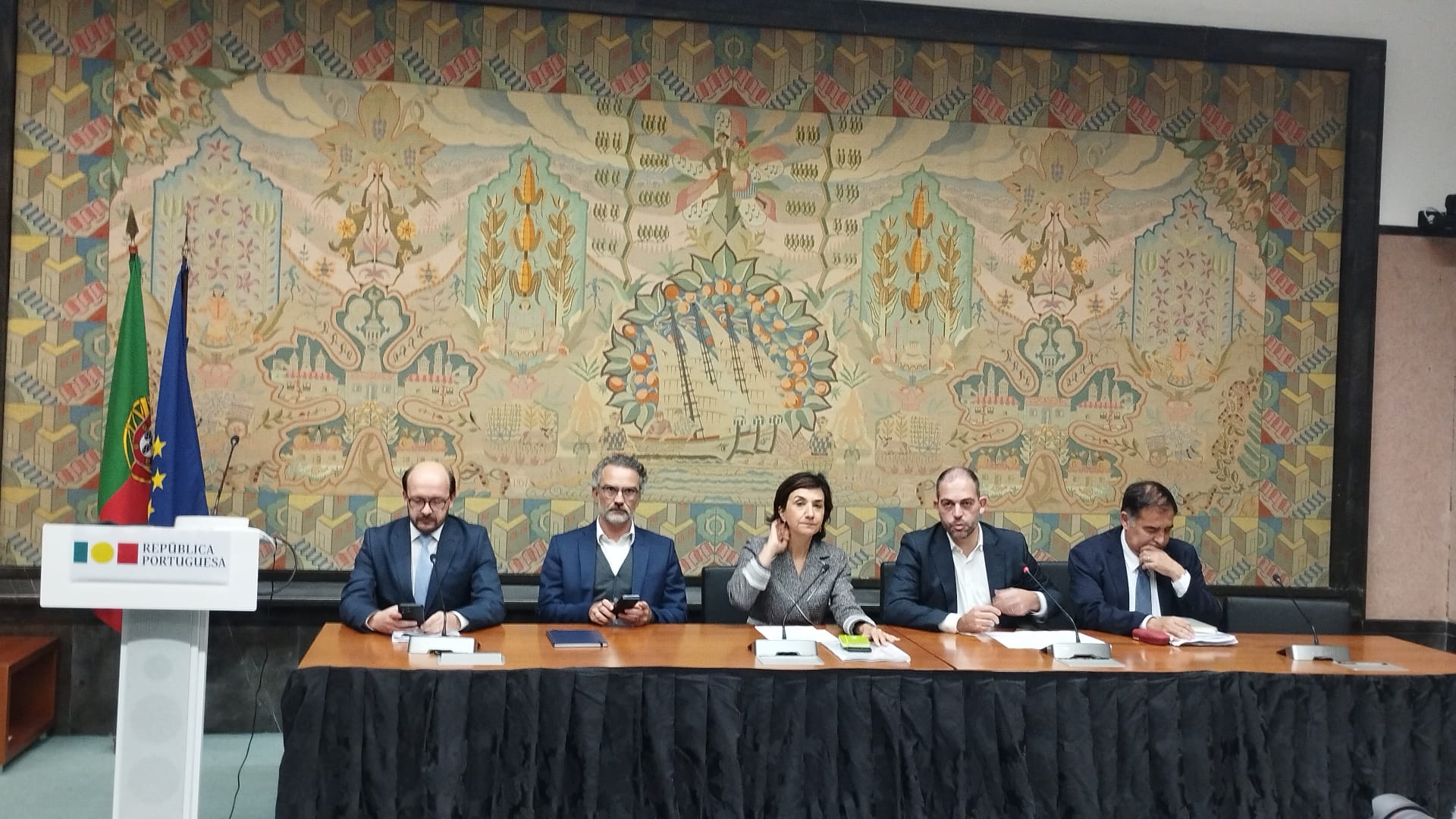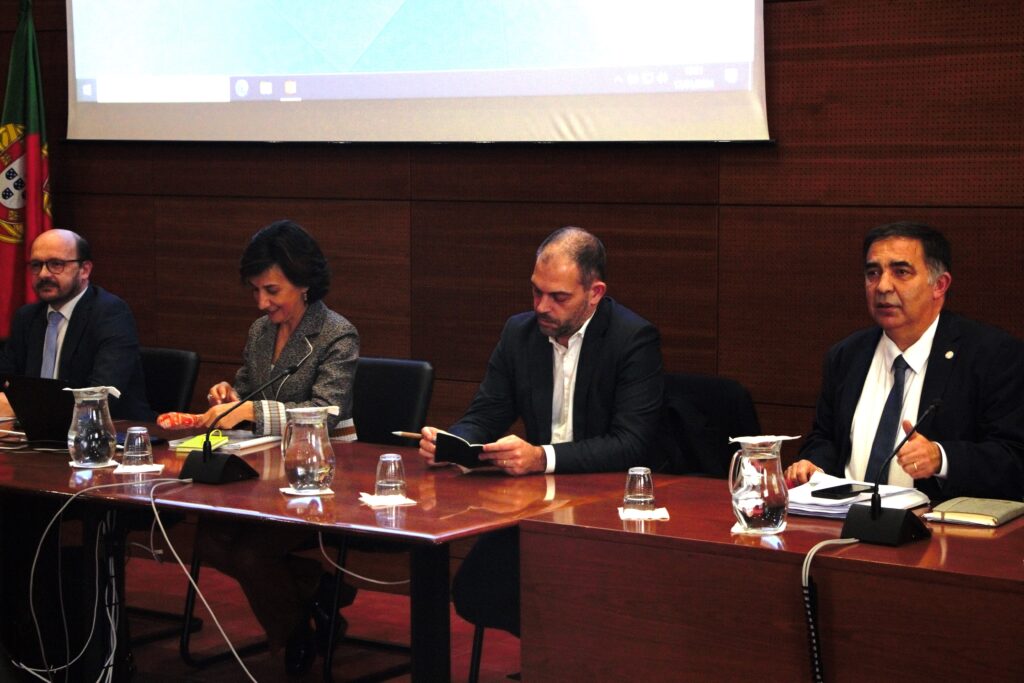Reductions of 25% in agriculture, 15% in tourism and domestic consumption – with water distribution quotas per municipality – as well as the suspension of second meters. These are just some of the 46 measures proposed by the Permanent Committee for Prevention, Monitoring and Monitoring of the Effects of Drought, which met this Wednesday, January 17, in Faro. If nothing was done, said the Environment Minister, the Algarve would reach the end of the year without water in the taps.
The meeting lasted throughout the afternoon and ended with a joint press conference by the Minister of Agriculture and the Minister of the Environment, in the auditorium of the Regional Coordination and Development Commission (CCDR), in Faro.
The set of 46 measures resulted from «two weeks of work», according to minister Duarte Cordeiro, and is a reflection of the «worrying situation» that the Algarve faces, with the dams at just 25% of their capacity.
In terms of agriculture, one of the sectors that has been most vocal about possible water cuts, a 25% reduction is proposed compared to last year's consumption (135 cubic hectometers): 100 from aquifers and 35 from reservoirs.
Therefore, given the scarcity, the Government decided to reserve the stored volume for human consumption only.
According to the minister, the proposed cuts translate into «a reduction of 50% in the agricultural perimeter of Sotavento and 40% in the Funcho/Arade system and 15% in the capture of water for irrigation».
Maria do Céu Antunes, Minister of Agriculture, said that these reductions were possible due to a «set of understandings and investments to be made that allow us to guarantee some survival».
The Bravura dam, which is at 8% capacity, will not irrigate this year, but three holes provided by Portimão City Council will be used.
In the Silves/Lagoa/Portimão system (Arade Hydrographic Basin), 2,5 hm3 will be transferred from Funcho and the technical solution to capture the dead volume will be activated.
The government official also announced her intention to “find solutions” for the cases of orange producers in the Algarve, particularly in Silves.
Some ideas are the attribution of «financial support to associations that use hydro-agriculture so as not to abandon the facilities and lines of financing dedicated to supporting the treasury».
Another measure is the rehabilitation of collective boreholes, for which the Government will provide support,

Maria do Céu Antunes also spoke about controlling losses by municipalities, alluding to the fact that there is money from the Recovery and Resilience Plan (PRR) for this purpose.
«Of the 43 million, 14 have been executed. All the work done by the municipalities to reduce losses is good for the community and I am sure that the municipalities will accelerate these initiatives and we are available to help», considered, in turn, minister Duarte Cordeiro.
It was from the governor's mouth that one of the main news came out: the allocation of supply quotas for the 16 municipalities. According to Duarte Cordeiro, each municipality will have to save 15% of its consumption, something that will be monitored.
Anyone who fails to comply for two consecutive months will be penalized, either "in terms of price" or, ultimately, "in the reduction of water volumes", he said.
Still with regard to domestic consumption, there will be a reduction in flow rates and the suspension of second meters to discourage the use of water for watering gardens and filling swimming pools.
In tourism, there will have to be a 15% reduction and it will only be possible to water to keep the trees alive.
Nuno Fazenda, Secretary of State for Tourism, also referred to measures such as the promotion of water efficiency in tourist developments, the adoption of a certification seal of recognition and good use of water and the creation of an awareness and communication campaign for better use of water and savings.
On golf courses, it will be possible to water greens e tees, but only to ensure their survival.
To monitor all these measures, a working group was also created, which brings together entities such as AMAL, the Regional Coordination and Development Commission and the Portuguese Environment Agency.
There will also be five technical groups to monitor the measures (agriculture, domestic consumption, tourism, awareness raising and inspection).
What is certain is that there is still no specific date for the measures to come into force, as they will still have to go to the Council of Ministers and it is unlikely to be the next one.
The estimate is, at most, “two, three weeks”.
Also present at the press conference, António Pina, president of AMAL – Comunidade Intermunicipal do Algarve, assumed that the message passed «is not happy for the people of the Algarve», but that the municipalities «will try to make» their efforts.
«The Algarve cannot and will not give up on agriculture. Now, the region will demand, from the new Government, another resilience for water supply in the future", he said.
This is because the fear is that the planned measures (such as the construction of the desalination plant and the capture of water in Pomarão) “will not be sufficient”.


















Comments